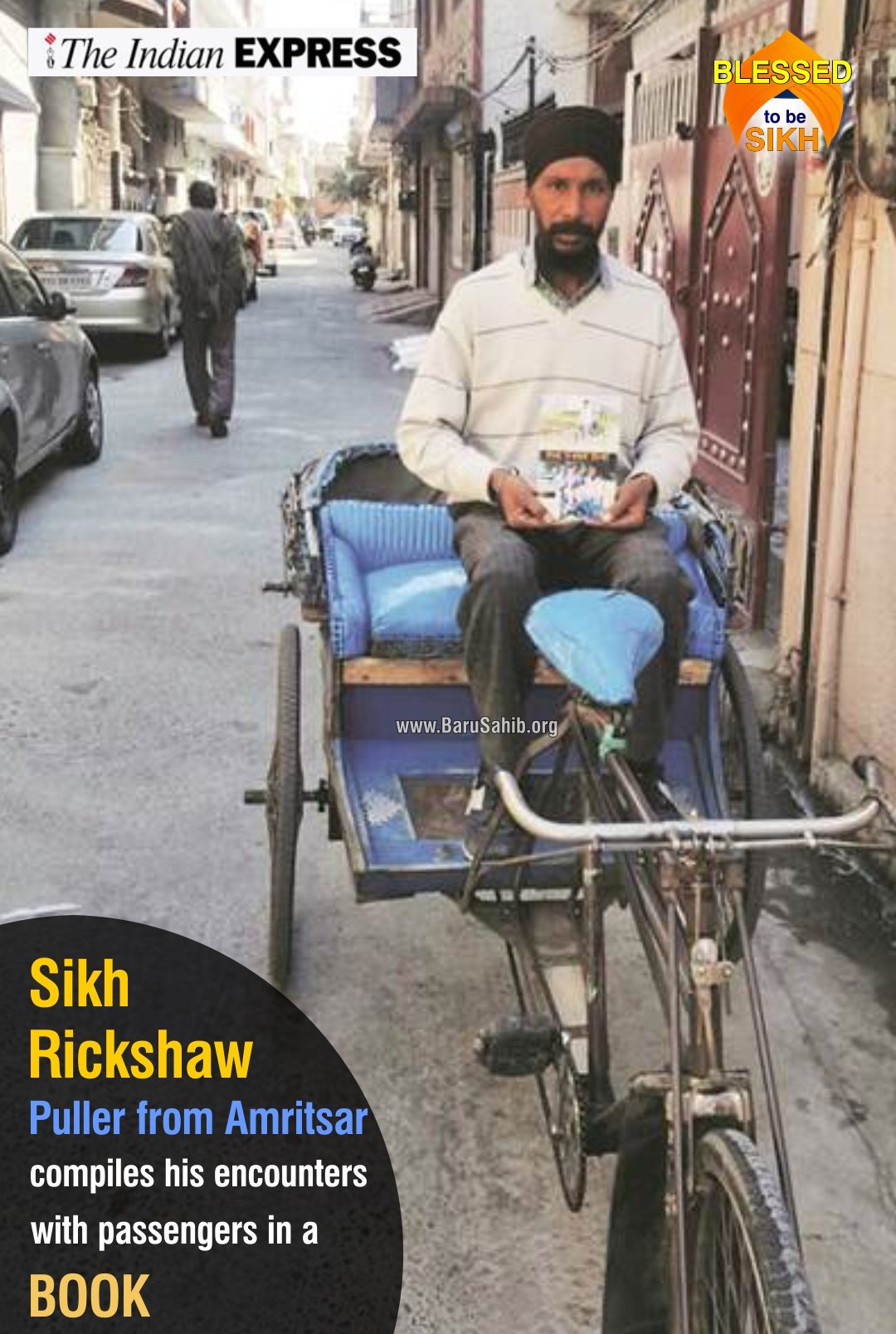Penning down his experiences with the passengers, a rickshaw puller from holy city of Amritsar has released his unique book Rickshaw tey Chaldi Zindagi (Life on a rickshaw). The book, written by Rajbir Singh (40), who is a matric (class 10) pass, is a compilation of short stories on his experience as a rickshaw puller. […]
Penning down his experiences with the passengers, a rickshaw puller from holy city of Amritsar has released his unique book Rickshaw tey Chaldi Zindagi (Life on a rickshaw). The book, written by Rajbir Singh (40), who is a matric (class 10) pass, is a compilation of short stories on his experience as a rickshaw puller. Twenty years ago, his father’s deteriorating health forced Rajbir to leave studies and start pulling a rickshaw on the roads of Amritsar. “With no other source of income visible to me then, I left studies and sat on the rickshaw of my father. It wasn’t that we were ancestrally poor. It were the circumstances that landed me into this work,” says Rajbir. The 14-chapter book costing Rs 200 has been published by Rajpura-based publishers.
In the book, Rajbir has compiled his encounters with interesting passengers which he describes as “unforgettable” people who came in his life.
For instance, a polio-stricken girl whom he used to see walk daily to office.
“One day, I shunned hesitation and asked her to sit on my rickshaw. She refused because she had no money but I told her I won’t take any money from her. For many days, I dropped her to office before she left the job and never met me again,” he says.
Then, he also writes about some tourists from abroad who had come to visit Golden Temple.
“I was stunned when they offered ice-cream to a poor like me. Not only me, but all five rickshaw-pullers whom they hired. We refused but they made us eat,” he says.
Rajbir has also installed a donation box in his rickshaw which says ‘Guru Di Golak, Sirf Lodwandan Layi’ (Guru’s donation Box, only for the poor).
“I put a part of my daily earnings into that box. Any passenger who wishes to also donates. At month’s end, this money goes to poor who cannot afford medicines, books etc or any needy passenger who sits in my rickshaw. He/she needs it more than me,” he says.
Rajvir is promoting his book through his friends, social media and passengers with some copies of the book always available in his rickshaw.
“After all, this rickshaw has given me everything, including courage and confidence to write this book,” he says.

